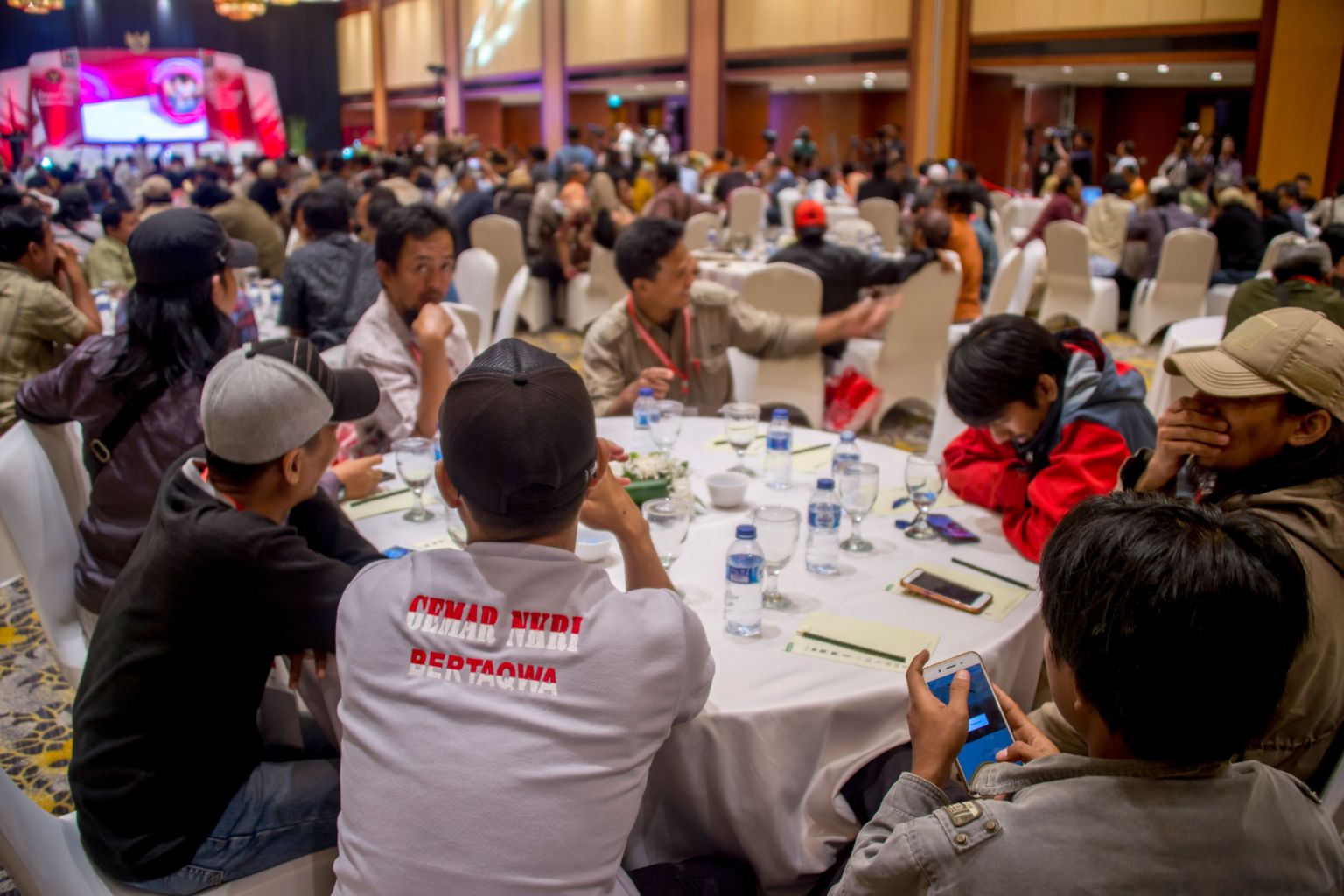Survivor groups skip Indonesia's first-ever 'terrorist-victim' meeting
Sign up now: Get insights on Asia's fast-moving developments

Government officials, former militants and terror attack survivors attending a "terrorist-victim" meeting in Jakarta on Feb 28, 2018.
PHOTO: AFP
JAKARTA (AFP) - A group of terror attack survivors boycotted Indonesia's first meeting between former militants and their victims on Wednesday (Feb 28), souring an event that had been hailed as a key step towards reconciliation.
The government-hosted meeting brought together 124 people convicted of terror-related crimes and some 51 survivors or family members of those killed in attacks.
But a pair of victim's rights groups shunned the event, saying that the face-to-face meeting in the ballroom of a Jakarta hotel was poorly planned.
"There are so many of them (former convicts) in the room. We're not ready psychologically," said Ms Ni Luh Erniati, an adviser to the Indonesian Survivors Foundation, who did not attend the event.
"We have forgiven them but we cannot predict what would happen if our emotions were ignited."
Indonesia, which has the world's biggest Muslim population, has suffered a string of extremist attacks this century, including the 2002 Bali bombings that killed more than 200 people.
Most of the dead were foreign tourists but 38 Indonesians were among those killed.
Ms Erniati lost her husband in the Bali attack and later founded the Isana Dewata Foundation to represent families of those killed.
Both the Isana Dewata Foundation and the Indonesian Survivors Foundation stayed away from Wednesday's event.
"We've tried similar smaller-scale events in the past but it was hard even then," said Ms Erniati. "Some survivors were so emotional and they became furious at the former militants."
Mr Febby Firmansyah - a survivor of the 2003 JW Marriott hotel bombing in Jakarta that killed 12 - refused to hold a grudge despite a mangled hand and permanent burn scars all over his body.
"If I succumb to my resentment, I would not be any different from them," he told AFP at the meeting.
"I cannot force other survivors to forgive them as quickly as I did... so I warned them: Don't come if you are not ready."
Sumarno, who served four years in jail for delivering and helping pack explosives used in the Bali bombing, said terror attacks must stop.
"It's hard and saddens me to see survivors who are now suffering from permanent disabilities," said the former militant, who, like many Indonesians goes by one name.
"I had not imagined the impact would be like that. I am sorry and have apologised to them."
Sumarno added that the meeting might help soften "discrimination" towards convicted militants who can have trouble finding work and fitting back into society.
Wednesday's meeting was the last of a three-day event which included remarks from government ministers along with education, social affairs and religious officials.
Only the convicted militants took part in classes about tolerance and diversity held earlier in the week.
Jakarta has been running a deradicalisation programme for a number of years while a crackdown has weakened the most dangerous terror networks. But fears have grown of a resurgence in militancy after hundreds of Indonesians flocked to the Middle East and the Philippines in recent years to join the Islamic State in Iraq and Syria group or its allies.


